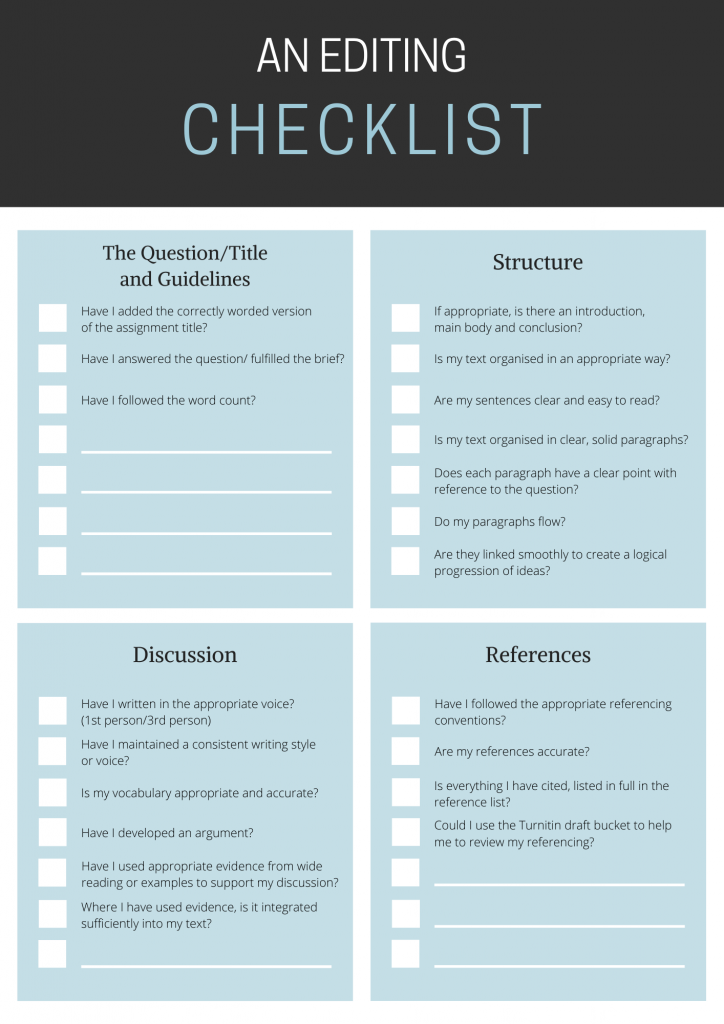Editing your work
Writing is a process and editing is a vital part of the drafting stage of that process.
When you have spent time planning your work and you have produced a draft of your assignment, it is important to take a step back so that you can review your writing. This is the editing process. If possible, it is useful to take a break from your assignment once you have completed the first draft and before you begin to edit. Leaving time, between finishing your draft and editing it, will give you a chance to view it with a fresh approach.
It is useful to think of editing as a series of questions you need to ask about your writing.
Zoom out: Editing your work
This is when you develop a basic overview of your text. Ideally you will have kept the assignment guidelines in mind when writing but, at this stage, it is important to review them in detail to ensure that your draft fulfils the brief.

When editing your draft, always try to keep the guidelines in mind. At the same time, try to put yourself in your reader’s shoes. Will they be able to follow what you are saying?
Remember, your role as writer is to guide your reader through your assignment from beginning to end. You should aim to express your thoughts clearly to your reader and to guide them so that they can read your writing and follow it with ease.
One important question you should ask yourself when editing, is ‘are my sentences too long or too short?’
Feedback on essays from tutors may include comments on syntax. The word syntax refers to the structure of sentences. If a sentence is not structured clearly then it becomes difficult for the reader to understand the message.
Writing is a personal process. It starts in our head and, then, we express those ideas on paper or screen so this means that we should consider whether what we have on paper or screen is a clear version of our idea. Asking ourselves whether the reader will be able to follow our ideas means checking our text for clarity.
Consistency is important. For example, when exploring the ideas of scholars, try to be consistent and use the present tense.
‘Appleby (2020) argues . . . ‘ rather than ‘Appleby (2020) argued . . .’
Try to be concise and direct. When introducing an essay, try writing:
‘This essay examines. . . ’ rather than ‘This essay will examine. . .’ or ‘This essay shall examine. . .’ or ‘This essay will be examining . . .’
Have you used too many words?
Another function of editing is to ensure that your writing is succinct or crisp. Have you made your point and then made it again in the next sentence? Do your sentences sometimes run on and on? Try breaking your long sentences into clearer, shorter and more succinct forms to help make them more direct.
Find a ‘critical friend’
You may find it helpful to work with a ‘critical friend’. This means asking a friend or relative to read through your writing. Your ‘critical friend’ does not need to be an expert in your subject area, the key question is whether they can follow what you are saying.
 LearningSkillsHub
LearningSkillsHub